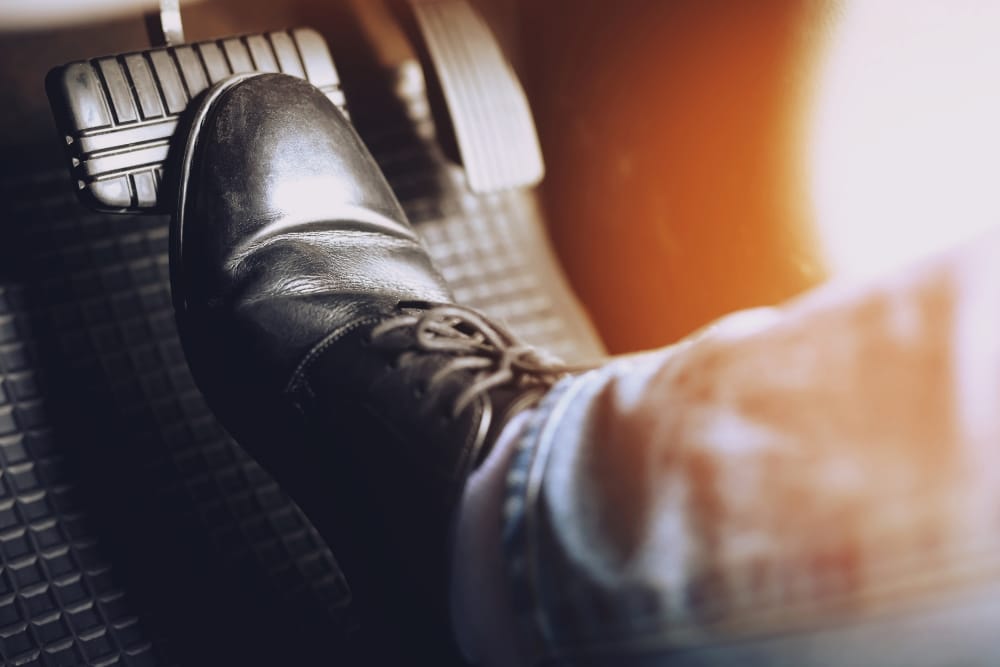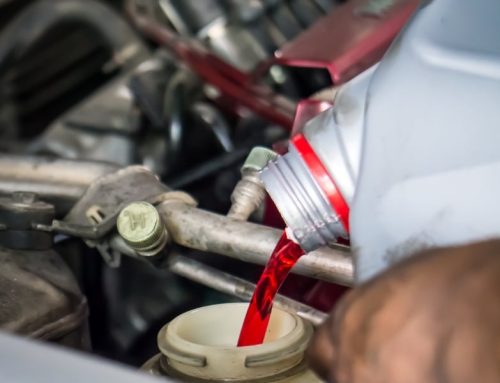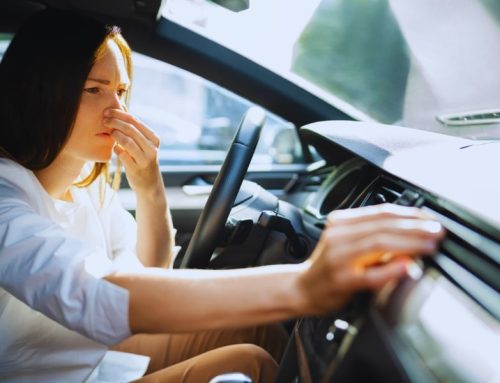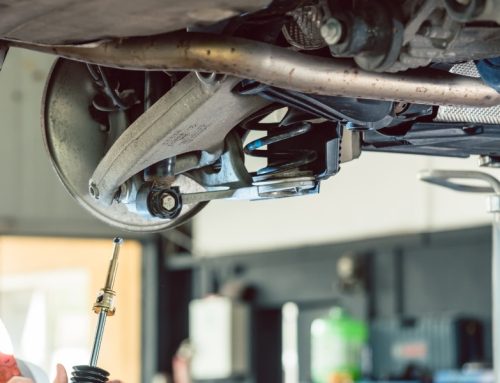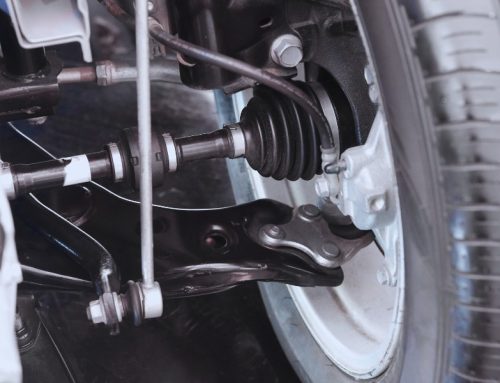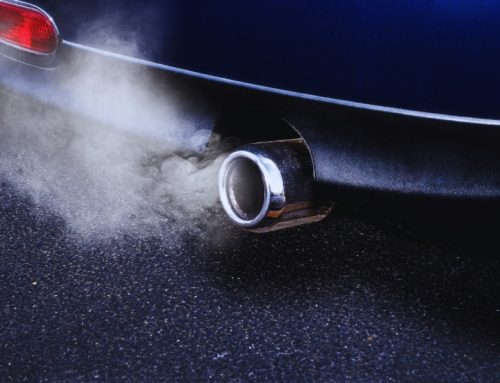Have you ever had to slam on the brakes and smelled something like burnt toast? Your brakes are probably acting up like a total drama queen! This guide will explain their pain and how to calm them down.
What are the common symptoms of overheating brakes?
Overheated brakes are a big deal. They can be scary and even dangerous. Luckily, they usually give you some clear warning signs.
- It’s harder to stop. Your brakes might feel a bit weak, so you might need to push harder on the pedal to slow down.
- The brake pedal feels weird. If your brake pedal feels like it’s got the jitters or is shaking, that’s not cool! It might mean your brakes are overheating and getting warped.
- You might also smell something burning, which is not good. A robust and unpleasant smell from your wheels is a hint that your brakes are unhappy.
- Smoke show. If you see smoke coming from your wheels, mate, that’s not good! Pull over ASAP. Something’s seriously wrong with your brakes.
- Your brakes look different. If you can safely check your brakes, look for any strange colours on the brake pads or rotors. Overheating can change their colour.
Remember: If you notice anything, pull over and let your brakes cool down. Don’t ignore them!
Why do brakes overheat?
There are a few reasons your brakes might be turning into a fiery mess:
- You’re a lead foot: Slamming on the brakes is always like giving your poor car whiplash. It’s tough on the brakes. It’s rough on your car, mate.
- Your brake parts are cranky: Old or worn-out brake parts can make your brakes overheat and act up. They don’t grip as well and make your brakes work overtime, which overheats them. It’s like trying to stop with broken shoes.
- Brake fluid drama: Overheated brake fluid is like a fizzy drink for your brakes. It can’t do its job right, and your brakes won’t work either.
- No airflow: Your brakes need to breathe. They’ll be like a hot mess if they can’t cool down.
What are the risks of overheated brakes?
Ignoring overheated brakes can lead to more severe and costly car repairs. Here’s what you need to know:
- Your car might not stop. In the worst case, your brakes could just give up on you. That’s scary stuff!
- It takes longer to stop. Even if your brakes don’t fail, they might not work as well. This means you’ll need more space to stop, which is risky.
- Your brakes can be damaged. Overheating can damage parts of your brakes, and that will cost you money to fix.
- You might get into an accident. If you can’t stop when you need to, you could crash.
- Your car could catch on fire. In terrible cases, your hot brakes can start a fire. That’s the last thing you want!
How to prevent overheating brakes?
Want to keep your brakes cool and your car safe? Regular car maintenance and following these tips can help:
- Drive chill. Smooth moves and looking ahead help your brakes relax. Avoid sudden stops.
- Use your engine to help. When going downhill, downshift to help slow you down without killing your brakes.
- Leave space. Give the car in front of you some room. This way, you won’t have to slam on the brakes.
- Take care of your brakes. Regular car service includes essential brake checks. To prevent overheating, follow your car’s guide for replacing worn-out brake parts.
- Get good parts. Quality brake pads, rotors, and callipers can handle more heat and stop you better.
- Avoid brake parties. Try not to ride your brakes, especially in traffic or going downhill. If you can, take a break to let them cool down.
- Pack light. Don’t overload your car. Too much weight makes your brakes work harder.
By doing these things, your brakes will last longer, and you’ll be safer on the road.
What to do if your brakes are overheating?
Overheated brakes are a severe problem, but staying calm and following these steps can help:
Cool it down
- Ease off the gas: Gently let up on the gas pedal to slow down without putting extra strain on your brakes. Avoid slamming on the brakes.
- Find a safe spot: Pull over to the side of the road as soon as it’s secure. Choose a place away from traffic and anything that could catch fire.
- Let them breathe: Give your brakes plenty of time to cool down. About 15-20 minutes should do the trick. Don’t use water to cool them down – this can cause more damage.
- Check for trouble: Once your brakes are cool, quickly check them for obvious problems, such as warped rotors or worn-out pads.
Get help
- See a pro: If you spot any issues or your brakes still feel off, take your car to a mechanic. They’ll know how to diagnose and fix the problem.
Remember: Overheated brakes can be dangerous, so taking them seriously is essential. If you’re unsure about anything, it’s always better to be safe than sorry.
Conclusion
Overheating brakes can be a scary experience, but understanding why brakes overheat and prevention methods can help you stay safe on the road. By being mindful of your driving habits, regularly maintaining your brakes, and knowing what to do in an emergency, you can prolong the life of your brakes and ensure your safety.
Keep your brakes in top shape with Port Phillip Automotive!
Don’t let brake issues bring you to a screeching halt. Port Phillip Automotive is your trusted partner for all brake servicing and repair needs. Our expert technicians have the latest tools and technology to efficiently diagnose and fix brake problems. From brake pad replacement to rotor resurfacing, we’ve got you covered.
Experience peace of mind knowing your brakes are in good hands. Book your brake service today and enjoy a safe and smooth ride. Contact Port Phillip Automotive to schedule an appointment or for any inquiries. Your brake safety is our priority.

